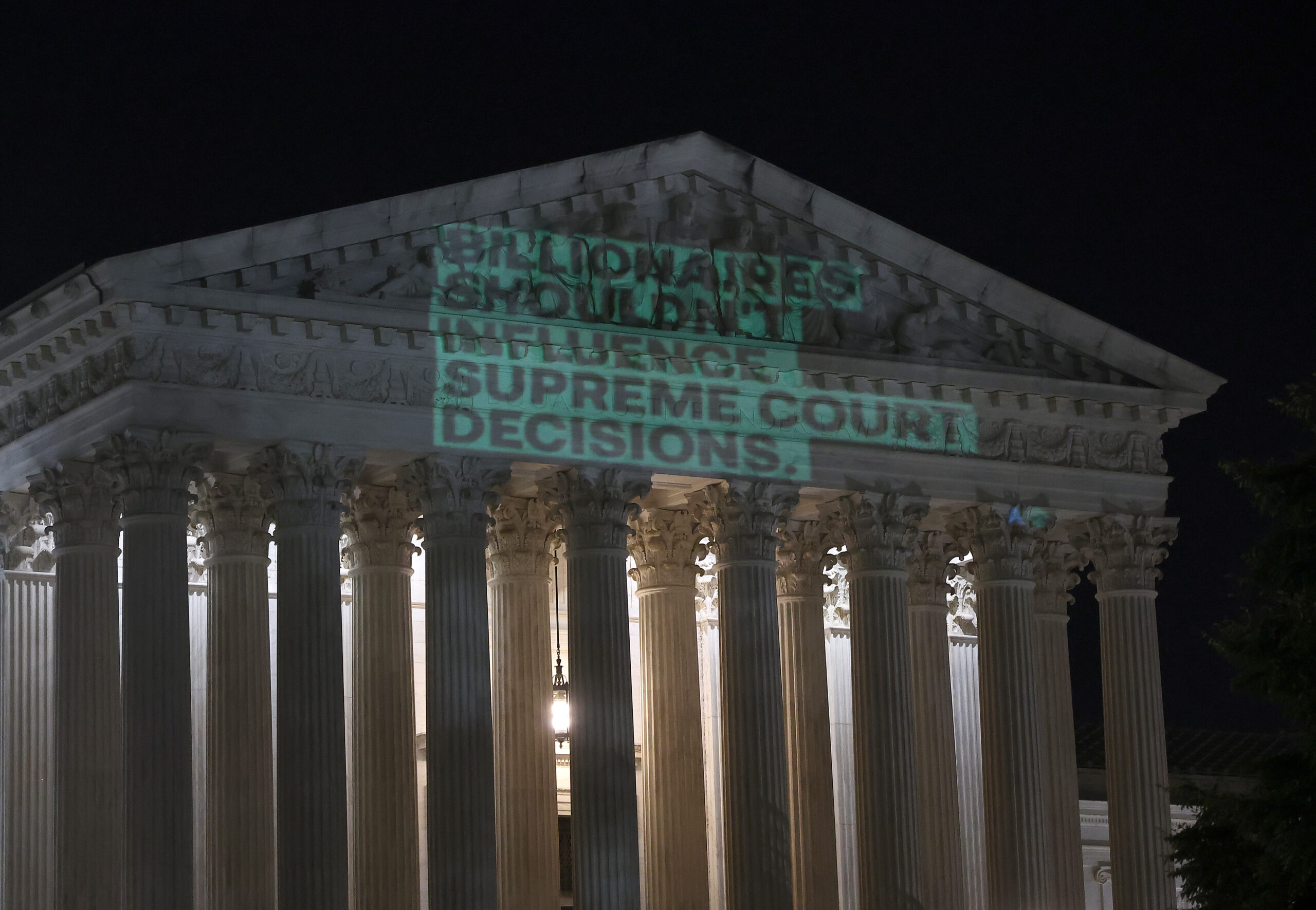Press Releases
ICYMI: Accountable.US President Caroline Ciccone: Justice Barrett has set a new judicial ethics standard—and it’s about time

Originally published in the Hill
WASHINGTON, D.C. — In case you missed it, today The Hill published a powerful op-ed by Accountable.US President Caroline Ciccone that calls for serious judicial ethics reform in the U.S. Supreme Court—and lifts up what should become the new baseline for recusal: The Barrett Standard.
In the piece, Ciccone applauds Justice Amy Coney Barrett’s recent decision to recuse herself from a case that could allow the nation’s first religious charter school. While Barrett didn’t explain her reasoning, the circumstances surrounding her ties to Notre Dame’s Religious Liberty Clinic and one of the legal advisors on the case point to a rare act of ethical caution—one that too many of her colleagues have failed to exercise.
Ciccone writes that Americans deserve a Supreme Court that plays by the same rules as every other federal court—and that means binding, enforceable recusal standards, public explanations for those recusals, and an end to justices policing themselves. The SCERT Act, proposed by Sen. Sheldon Whitehouse and Rep. Hank Johnson, would help establish this basic transparency and accountability for the High Court.
“Justice Barrett’s recent recusal provides a template for what responsible judicial ethics should look like,” said Caroline Ciccone in the piece. “Now, her colleagues must consistently adopt this standard or face the consequences of continued public distrust. The Court’s legitimacy—and ultimately, our nation’s commitment to the rule of law—depends on it.”
At its core, the op-ed is a call for fairness and transparency. Ciccone breaks down what needs to change—and how we get there:
- The Supreme Court’s recusal process lacks accountability. Justices currently decide for themselves whether to step aside from a case, with no requirement to explain their reasoning. This broken system has allowed serious conflicts of interest to go unchecked.
- Justice Barrett’s recent recusal offers a rare example of ethical caution. Though not publicly explained, her decision to recuse from Oklahoma Statewide Charter School Board v. Drummond likely stemmed from close ties to parties involved in the case—and stands in contrast to other justices’ refusal to do the same under similar circumstances.
- Congress must establish clear, enforceable ethics rules. The SCERT Act would create mandatory recusal standards, require justices to disclose conflicts, and introduce independent review—reforms urgently needed to restore public trust in the Court.
You can read the full op-ed here.
###
